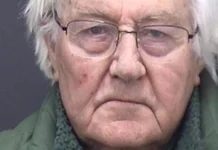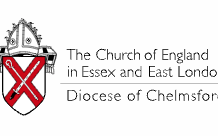[14 Feb 2019] On Tuesday afternoon, H.H.B. our Father and Patriarch of Jerusalem Theophilos held a meeting with the Archbishop of Canterbury Most Reverend Justin Welby and his associates, and with the Most Reverend Archbishop and Head of the Anglican Church in Jerusalem Mr. Suheil Dawani, at the seat of the Anglican Church in Amman of Jordan on the occasion of the administrative reforms of the Anglican Church in the Middle East region.
In this meeting His Beatitude was being escorted by the Most Reverend Archbishop Aristarchos of Constantina, Priest Issa Musleh, the legal adviser of the Patriarchate Mr. Rami Moghrabi and the Manager of the Patriarchate’s Office in Amman of Jordan Mrs. Wafaa Ksous.
In this meeting Archbishop Suheil Dawani underlined the cooperation of his Church with the Mother Church of Jerusalem, the cooperation of the Heads of the Christian Churches of Jerusalem for matters related to the Christians of the Holy Land and the sustaining of the Status Quo, for which, one year ago there was the decision of closing down the Church of the Holy Sepulchre. In this meeting H.H.B. delivered the following address;
“Your Grace, dear Archbishop Justin,
Your Grace, dear Archbishop Suheil,
Your Eminences,
Your Graces,
Dear Fathers,
Ladies and Gentlemen,
It is an honour for us to be with you for this important meeting of Regional Primates of the Anglican Communion, and we welcome you to the Hashemite Kingdom of Jordan. As you know, His Majesty King Abdullah II is a stalwart defender of the multi-cultural, multi-ethnic, multi-religious character of the Middle East in general and the Holy Land in particular, and the Kingdom remains a model of religious freedom in this region.
As we welcome you, Your Grace, dear Archbishop Justin, we would like to take this opportunity to express our deep gratitude to you once again for your personal support and the support of your staff and colleagues in the ongoing work of ensuring the freedom and the rights of the Churches and Christian Communities of the Holy Land.
In particular, we are grateful to His Royal Highness the Prince of Wales for his public support, and to the Dean of Westminster for his role in opening Westminster Abbey last December for a service of witness to the plight of Christians in the Middle East. Such a clear manifestation of solidarity with the Christian communities of the Middle East is a tremendous encouragement to all who labour every day to ensure that our indigenous Christian Communities in the Middle East, some of which go back to the earliest days of the life of the Church, remain alive and vital at a time when the threats against them are real and potentially devastating.
This last year was a particularly difficult one for us. There have been many challenges to the Christian community and to the well-being of our society and the Holy Places, many of which are the result of aspirations for political gain by politicians attempting to strengthen their positions at the expense of our Churches. There have also been further attempts to undermine the Christian presence in the region.
With the ready assistance of our international supporters, including Your Graces, as well as many other governmental and Church leaders, we have managed to keep these threats at bay. But the pressure remains, and some of these threats have not gone away. They are simply dormant for the moment, and they could rise to the surface again at any time. We must not relax our vigilance, nor our influence on those who have the power to protect the Churches from such threats.
In this regard, we see great hope in the in the work of the International Community of the Holy Sepulchre as an advocate on behalf of the Churches in the Holy Land. ICoHS has the firm support of the Heads of the Churches, and we are grateful to you dear Archbishop Justin, for your enthusiasm for this organization and for the help you have given to those who have established it.
We have experienced a significant blessing in the deeper spirit of unity among the Heads of the Churches and Christian Communities of the Holy Land in the course of the work we have done to protect the Church, and we rejoice in this mutual commitment to a common mission. Our unity of resolve and purpose is strong, and in this regard especially, we wish to express our gratitude to His Grace Archbishop Suheil, whose unwavering leadership has been an indispensable part of the success of this joint work so far. Not only have you, dear Archbishop Suheil, been an absolutely reliable colleague, in your own pastoral zeal for the Anglican Church in your diocese, especially in the rebuilding of your communities, but you have also helped to ensure the ongoing Christian presence here. For all this work, you are recognized beyond your own Communion.
As you meet here in Amman to take counsel for the most effective ways in which to oversee the Anglican Communion in this region, we know that you are all deeply aware of the situation in which we find ourselves. We also note the long-standing, close, and mutually beneficial relationship that has always existed between the Patriarchate of Jerusalem and the Anglican Communion, and this relationship gives us both strength and encouragement both for the relationship between our two Churches, and for our common spiritual mission in this region.
May God bless you and guide you in all your deliberations, and may God bless all the peoples of our beloved Holy Land and the Hashemite Kingdom of Jordan.
Thank you”.
The Most Reverend Archbishop of Canterbury said that it is a blessing for him to visit again the countries of the Middle East, he praised His Beatitude, who apart from His other qualities,is distinguished for His valor and within it the reconciliation, which was made obvious by the historic decision to close down the Church of the Holy Sepulchre and then open it again after the intervention of the Prime Minister of Israel Mr. Benjamin Netanyahu, who ordered the suspension of the tax measures imposed by the Municipality of Jerusalem against the Churches.
Moreover, he said that the relationship between the Patriarchate of Jerusalem and the Anglican Church has become stronger during the Patriarchal Office of the Patriarch of Jerusalem Theophilos.
From Secretariat-General










